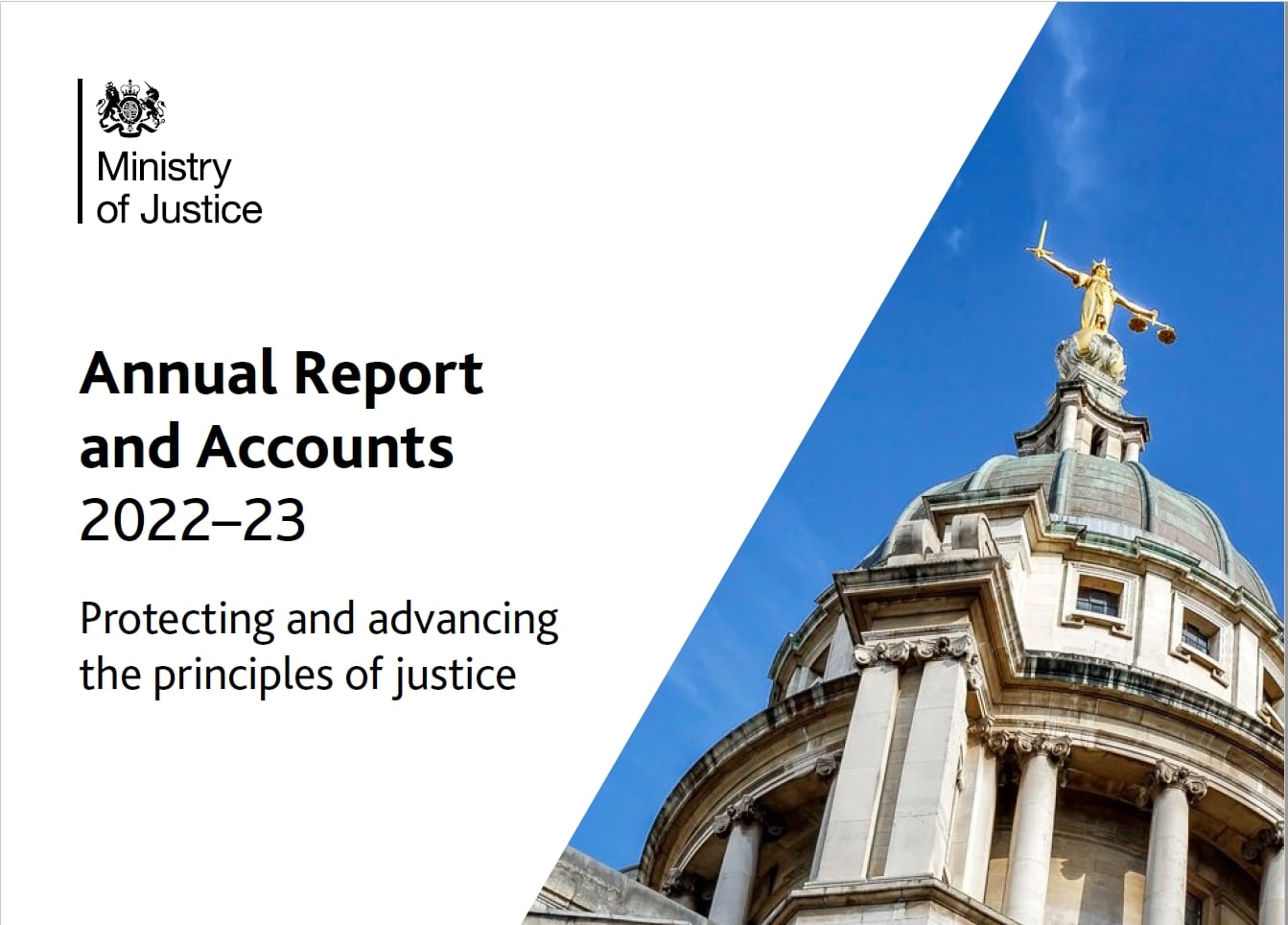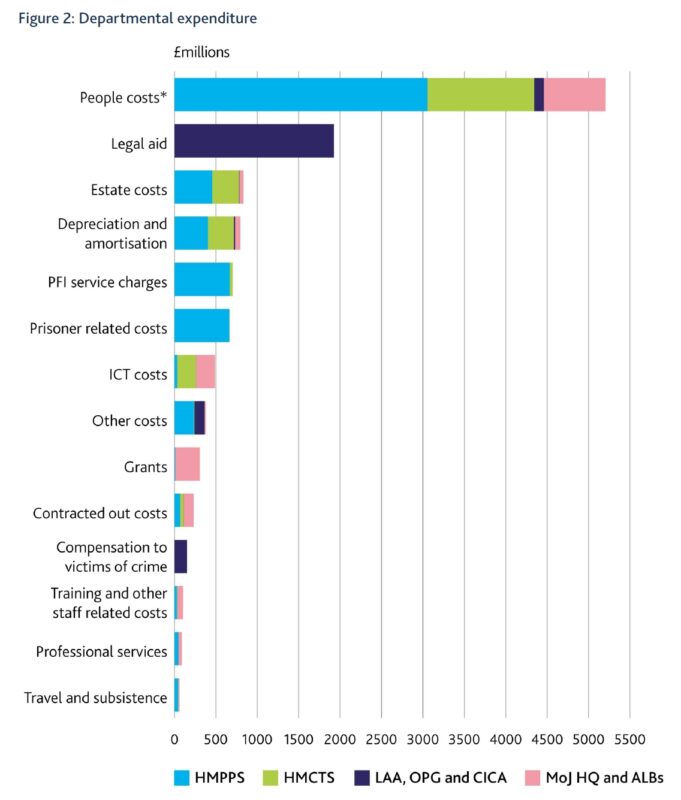Earlier this week (28 November 2023), the Ministry of Justice published its annual report and accounts for 2022/23. I’ve perused the 286 page report to unearth some noteworthy nuggets of information. I hope you find them interesting too.
Acronyms
The MoJ is responsible for no fewer that 34 executive agencies and other arm’s length bodies. The big five, which deliver the bulk of the department’s services, are almost certainly well known to readers:
- HM Prison and Probation Service
- HM Courts and Tribunals Service
- Legal Aid Agency
- Office of the Public Guardian
- Criminal Injuries Compensation Authority
The other 29 include everything from the YJB & Parole Board through the justice inspectorates (& IMBs), Sentencing Council & Law Commission to the Judicial Appointments and Conduct Ombudsman and Assessor of Compensation for Miscarriages of Justice.
Performance
There’s a slight surreal feel to skimming the highlighted performance figures and forewords from the Justice Secretary (Alex Chalk) and Permanent Secretary (Antonia Romeo) which acknowledge a “challenging and fiscal environment” but focus on achievements without mentioning the ongoing crises in our prison (violence, self-harm & understaffing), probation (under-staffing) and court (intransigent backlogs) systems.
Instead we hear of more body worn cameras, more tagging and the construction of the UK’s first all electric powered prison (HMP Millsike).
Finances
The Department had just over £11 billion in net cash in the financial year (of which £1.7bn comes from fines, fees, contributions from
clients who received legal aid funding and income from prison industries).
Unsurprisingly staff costs were by far the biggest item of expenditure; the MoJ spent the following amounts of staff in different areas:
- £3bn on HMPPS
- £1.2bn on Courts & Tribunals
- £650m on MoJ HQ
As usual, if you dig deep enough you can see glimpses of the real challenges facing the MoJ. The highlighting of this quote from the report is mine:
Short term financial risks were minimised by a positive outcome of our efficiency and savings review with HMT. Continued management will require all additional expenditure decisions to be counter balanced with savings.
In other words, there seems unlikely to be any new money to address the ongoing (and worsening) problems. You can see a breakdown of MoJ expenditure in the chart I have reproduced from the report below.
Drug Testing
Despite increasing concerns about the increase in drug-related fatalities again this year, random Mandatory Drug Tests (rMDT) have not yet returned “to the levels required for reliable national or establishment-level estimates”. Robust test reporting also requires a testing panel which captures the range of drugs in circulation; as the testing panel was not updated in 2022-23 the test results for the last 12 months are likely to be inaccurate as there may be new drugs in circulation that are not being tested for.
Good news
There are some positive pieces of information in the report including:
- The recruitment of 63 Neurodiversity Support Leads to identify and support neurodivergent prisoners in accessing education and work opportunities within prison, with a further 60 to be recruited in 2023-24.
- Opening six drug recovery wings, which will allow prisoners to address their addictions through abstinence-based treatment
- Doubling the number of Incentivised Substance Free Living units to 50, helping prisoners to address their dependence on drugs through regular drug testing and support.
Ministerial churn
There were a total of 17 different MoJ ministers of different grades responsible for the Department’s work in 2022/23 with no less than eight being in post for three months or less (this figure is somewhat inflated by the people promoted in Boris Johnson’s final days in office when so many ministers resigned). Brandon Lewis received £16,876 compensation for losing his job as Justice Secretary which he held for 7 weeks. Interestingly, Rachel Maclean who was a Minister at the MoJ for the same period of time was entitled to compensation of £7,920 but returned the full amount.
Remuneration
Antonia Romeo, the Civil Servant heading up the MoJ (the Permanent Secretary) did not seem to receive a pay rise last year, nor did she receive a bonus, unlike the previous year. She earned £185-190k plus pension benefits of £50k. Amy Rees, HMPS Chief Exec, earns £150-£155k per year plus pension benefits of £22k; last year she received a bonus payment between £15-£20k.









